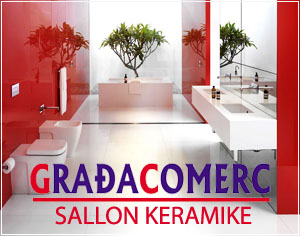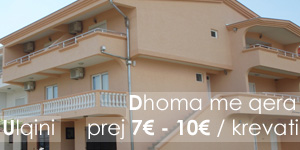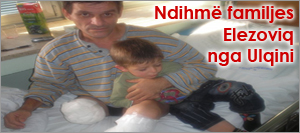Croatia goes for mass tourism: Montenegro for elite one
 ZAGREB, PODGORICA – Only a few months ago, leaders in the Balkans forecasted they would escape the worst of the world recession. Now, many say they are next in line after the United States and the rest of Europe and a poor summer tourism season could deliver a severe blow to Montenegro and Croatia.
ZAGREB, PODGORICA – Only a few months ago, leaders in the Balkans forecasted they would escape the worst of the world recession. Now, many say they are next in line after the United States and the rest of Europe and a poor summer tourism season could deliver a severe blow to Montenegro and Croatia.
Namely, both rely more on tourism revenue as a percentage of their gross domestic product than any other European countries, accounting for about a quarter of their economies, according to the World Travel and Tourism Council. Lower revenue could delay or reduce billions of dollars in expected leisure investment for years to come and have a serious effect on the balance of payments, while making foreign loans from institutions such as the International Monetary Fund and commercial banks all the more pressing.
Many hotels and restaurants are talking about cutting prices by 10 to 20 percent. Croatia is suspending visa requirements for some nationalities and cutting tourism taxes.
“We will be hit,” Montenegro Tourism Minister Predrag Nenezic said. “I’d be happy with minus 5 percent revenue.”
Croatia has similar hopes, although some expect 20 percent less revenue, which would force it to re-adjust its budget.
Still, heavy discounting could complicate Montenegro’s plans to differentiate itself from Croatia by moving up market.
“Croatia clearly has gone for mass tourism,” said Peter Munk, founder of Barrick Gold and lead investor converting a former naval port into a yacht complex in Tivat, Montenegro. “Montenegro has taken a much more careful approach.”
However, company officials say the future is bright
.
“Montenegro and Croatia, in my view, have the best and most beautiful coastline in Europe,” said Adrian Zecha, founder of Amanresorts. “It is still unspoiled compared to the western Mediterranean coastline, which is overbuilt.”
Many renowned Adriatic destinations are crying out for investment. Korcula, Croatia’s most heavily populated island with a medieval walled core, still has lacklustre Yugoslav-era state hotels and past privatisation efforts have failed.
“Without new serious investment, I think our tourism will stagnate,” said Korcula Mayor Mirko Duhovic. “Montenegro has opened the door to investors, they are much more liberal, which has led to a boom in investment.”
Even as they prepare for tougher economic times, residents take comfort in knowing things can hardly be worse than during the wars in the 1990s.
Author/source: SEEbiz / Reuters






